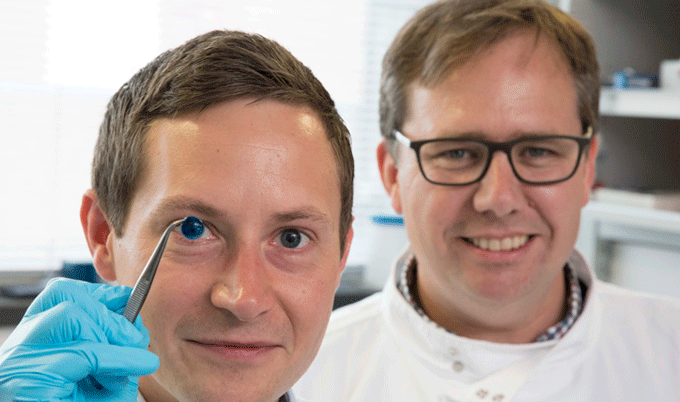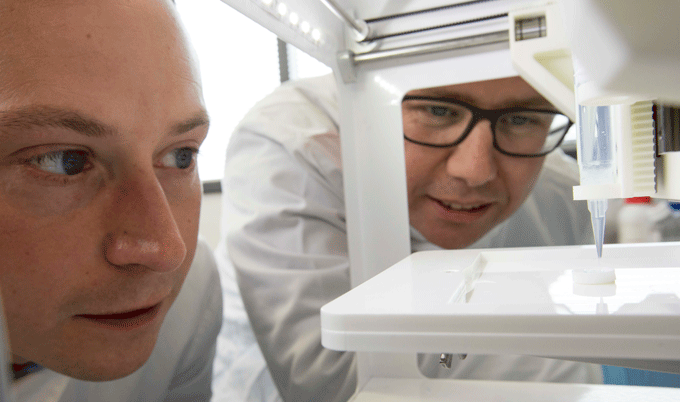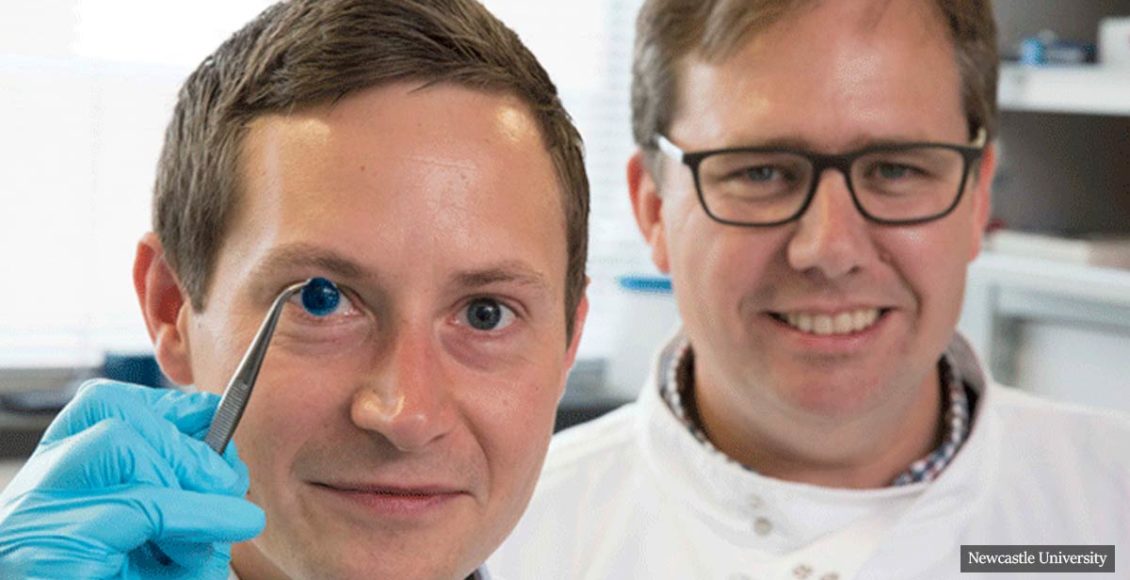Researchers at the UK Newcastle University have created the world’s first 3D printed human corneas!
This outstanding breakthrough is extremely valuable since nowadays there is a significant shortage of corneas available for transplant. Scientists hope the 3D printing technique could be used to provide an unlimited supply of corneas.

The cornea plays an important role in focusing vision. It is the outermost layer of the human eye. Currently, there are 10 million people worldwide requiring surgery to prevent corneal blindness. It is usually the result of diseases such as trachoma, an infectious eye disorder. Moreover, there are over 5 million people who suffer total blindness due to corneal scarring.
In their experimental research, experts report on how stem cells in a combination with alginate and collagen create a ‘bio-ink’.
By using a simple 3D bio-printer, the bio-ink was successfully extruded in concentric circles to form the shape of a human cornea.
The whole procedure lasts a little over 5 minutes.
What’s more, their study also shows that they are able to build a cornea that matches patients’ unique specifications.
The Professor of Tissue Engineering at Newcastle University and leader of the experiment, Che Connon, explains:
“Our unique gel – a combination of alginate and collagen – keeps the stem cells alive whilst producing a material which is stiff enough to hold its shape but soft enough to be squeezed out the nozzle of a 3D printer… Now we have a ready to use bio-ink containing stem cells allowing users to start printing tissues without having to worry about growing the cells separately.”
Moreover, he says that there will be several years before they can their 3D printed corneas for transplants.

That’s because they are still working on the experiment, and it needs to undergo further testing.
Additionally, the director of research, policy, and innovation at Fight for Sight, Dr. Neil Ebenezer, says:
“We are delighted at the success of researchers at Newcastle University in developing 3D printing of corneas using human tissue. This research highlights the significant progress that has been made in this area and this study is important in bringing us one step closer to reducing the need for donor corneas, which would positively impact some patients living with sight loss. However, it is important to note that this is still years away from potentially being available to patients and it is still vitally important that people continue to donate corneal tissue for transplant as there is a shortage within the UK.”



